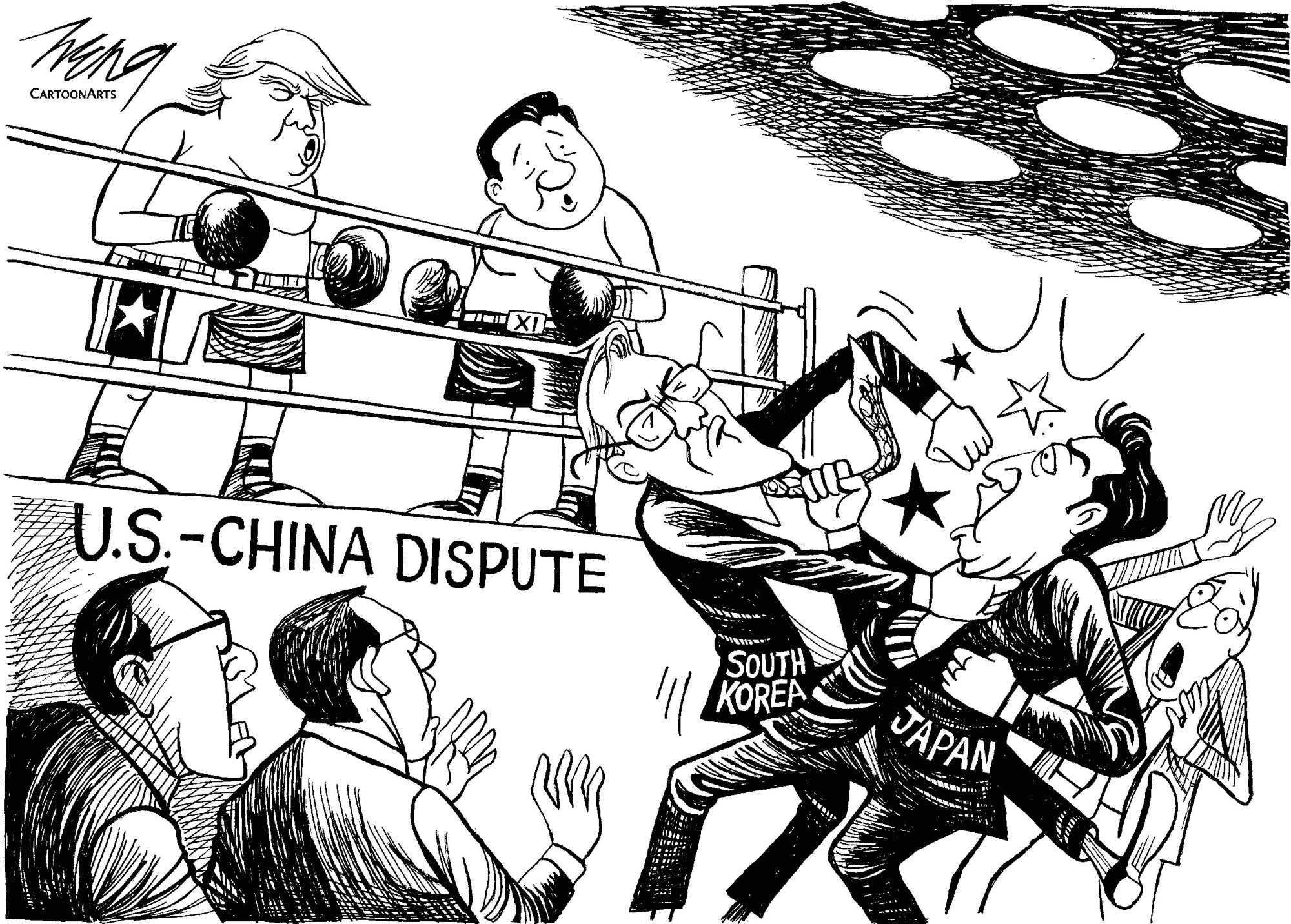The body language between Prime Minister Shinzo Abe and South Korean President Moon Jae-in said it all. Instead of using the Group of 20 summit meeting in Osaka in late June as an opportunity for the two leaders to engage even as bilateral relations remained terse, optics from the conference showed just how deep the rift between Tokyo and Seoul had become. The two men studiously avoided one another throughout the very public forum, and no bilateral meeting was held on the sidelines.
In that light, Japan's latest decision to impose export restrictions on South Korea targeting its technology sector is both surprising and expected in light of mounting frustrations between the two countries. Still, given that the trade friction is a symptom rather than a cause of the deep-rooted bilateral dispute, simply seeking to resolve the export restrictions would be only a temporary solution to a far bigger issue.
The implications of Japan's decision to tighten the rules on exports of three key specialized materials — namely fluorinated polyimide, resist polymers, and hydrogen fluoride, which are prerequisites for producing semiconductors and computer displays — have rattled Korean technology giants including Samsung and LG. Given that a quarter of South Korea's export economy depends on chip production, an inability to source materials would be a tremendous blow for the country at large.


















With your current subscription plan you can comment on stories. However, before writing your first comment, please create a display name in the Profile section of your subscriber account page.